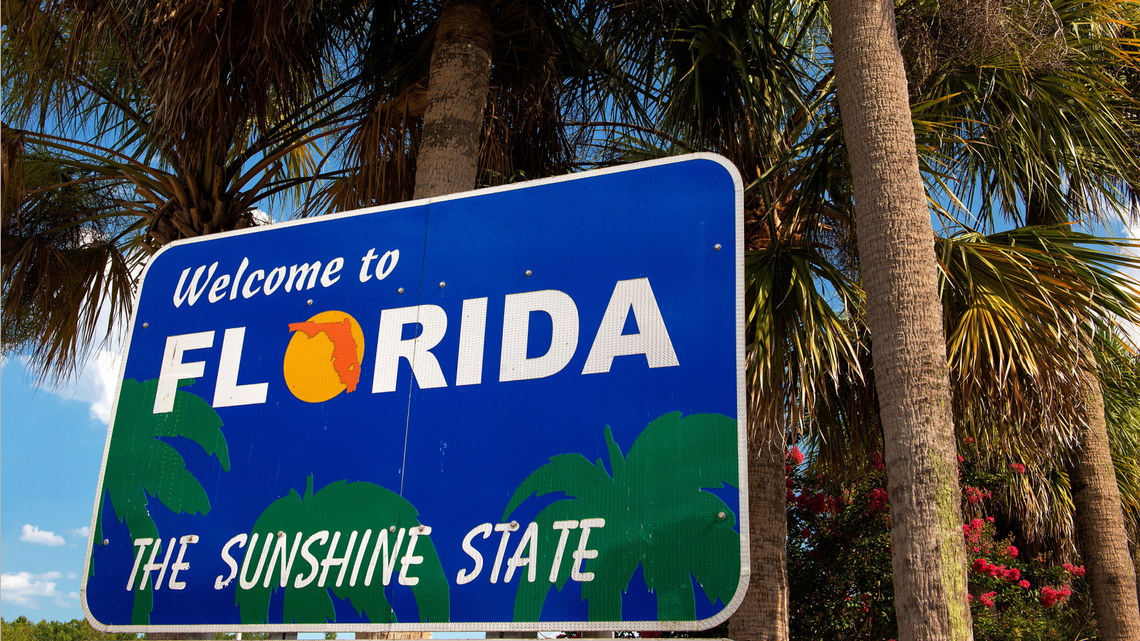
The NAACP’s travel advisory for the state of Florida comes as a response to new anti-Black, anti-immigrant, and anti-LGBTQ+ policies from the state’s government. It could have symbolic and economic impacts.


The NAACP’s travel advisory for the state of Florida comes as a response to new anti-Black, anti-immigrant, and anti-LGBTQ+ policies from the state’s government. It could have symbolic and economic impacts.
The National Association for the Advancement of Colored People, one of the pre-eminent civil rights groups in the United States, has issued a travel advisory this week warning Black, LGBTQ+ and people of color of the risks of traveling to Florida.
“Florida is openly hostile toward African Americans, people of color and LGBTQ+ individuals,” the official notice says. “Before traveling to Florida, please understand that the state of Florida devalues and marginalizes the contributions of, and the challenges faced by African Americans and other communities of color.”
The NAACP’s advisory joins warnings already made by local and national advocacy groups, including The League of Latin American Citizens and Equality Florida. The warnings are a response to the recent wave of legislation passed by Florida Governor Ron DeSantis’ administration introducing aggressive new anti-immigrant policies, dismantling diversity programs at state colleges and universities, and banning gender-affirming healthcare for trans minors. The advisory also cites concerns over rolled-back gun regulations and voting rights.
The NAACP advisory and other travel advisories don’t tell people not to go to Florida—just to be aware of the additional risks, and to draw attention to supporting communities that the state’s laws are oppressing. Time will tell whether the warnings will lead to a drop in visitors, or have a political impact.
As a frame of reference, when other states and businesses boycotted Arizona over its harsh immigration policies in 2010, one study at the time calculated the loss to the tourism sector as roughly USD$140 million—a drop in ocean compared to the state’s $260 billion GDP. But any loss in revenue can impact local businesses and communities.
“We’re not saying, ‘Don’t come to Florida, don’t spend your money here.’ We’re saying if you are coming, come to an entertainment center that supports diversity, equity and inclusion”
- Leon Russell, NAACP
Even if the advisories do harm Florida’s economy, they probably won’t have as great an economic impact as Governor DeSantis’ policies could. In a statement, LULAC, the largest and oldest Hispanic and Latin-American civil rights organization in the United States, points out that, “Under the new enforcement orders, Florida’s construction, restaurant, and agriculture industries are set to be economically devastated. These businesses heavily rely on immigrant workers, and the enforcement measures will disrupt their workforce, leading to significant economic losses.”
Although the NAACP’s advisory isn’t meant to discourage people from visiting the state of Florida, it’s worth noting that other countries, including New Zealand, France, the UK, and Mexico, perceive very real threats in the US and warn their citizens to take precautions when traveling there.
Most of the warnings are blanket advice to all travelers based on the incredibly high rates of gun violence in the United States and advise that they avoid large crowds and walking alone at night. Over the years, countries have also issued warnings to their citizens to be cautious of police brutality and public unrest around Black Lives Matter protests. The Bahamian Ministry of Foreign Affairs, for example, warned travelers—“In particular young males”—to “exercise extreme caution” with the police in 2016.
However, it seems that the governor of Florida is attempting to diminish the message of the advisory. Governor DeSantis’ press secretary, Jeremy Redfern, told Fox News Digital that the NAACP travel advisory is “nothing more than a stunt. “As Governor DeSantis announced last week, Florida is seeing record-breaking tourism,” said Redfern. But dismissing the advisory as “just” a bid for media coverage distracts from the very real, and genuinely dangerous, issues which the organization is calling attention to.
“In Florida, this is about the politics of the situation and so people need to buckle in and organize, and get themselves arranged to deal with elections and the consequences of the elections,” Leon Russell, chair of the NAACP told The Guardian.
“It’s to make the general public across the nation fully aware of what’s happening here in Florida. The legislative actions that concern us cover a broad gamut, not just Black history, not just public education, but what we consider to be attacks on different groups of people who make up the state of Florida. We’re not saying, ‘Don’t come to Florida, don’t spend your money here.’ We’re saying if you are coming, come to an entertainment center that supports diversity, equity and inclusion, go to companies that support all groups of people, corporations that have spoken out in favor of human rights rather than trying to restrict them.”

Miyo McGinn is Adventure.com's US National Parks Correspondent and a freelance writer, fact-checker, and editor with bylines in Outside, Grist, and High Country News. When she's not on the road in her campervan, you can find her skiing, hiking, and swimming in the mountains and ocean near her home in Seattle, Washington.




Can't find what you're looking for? Try using these tags: